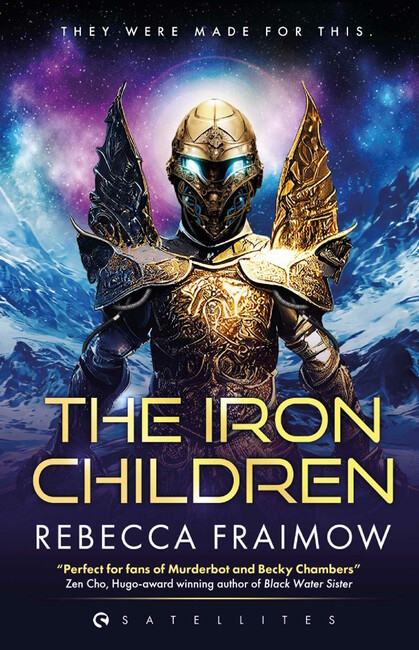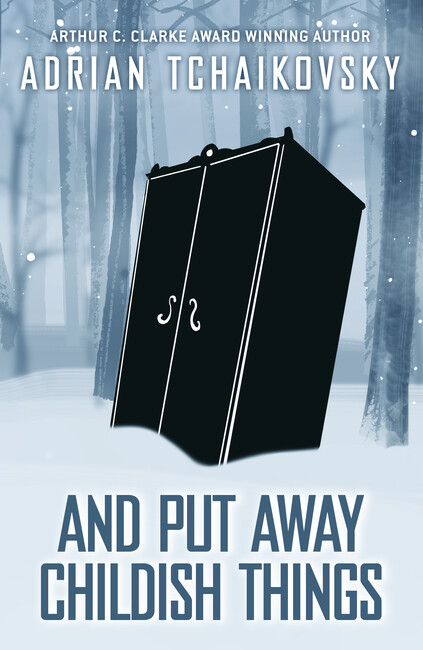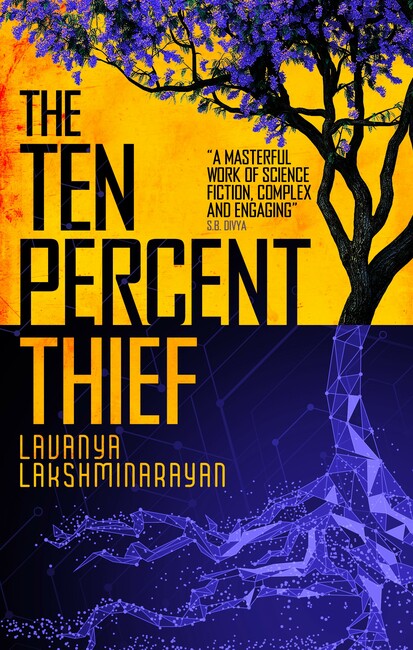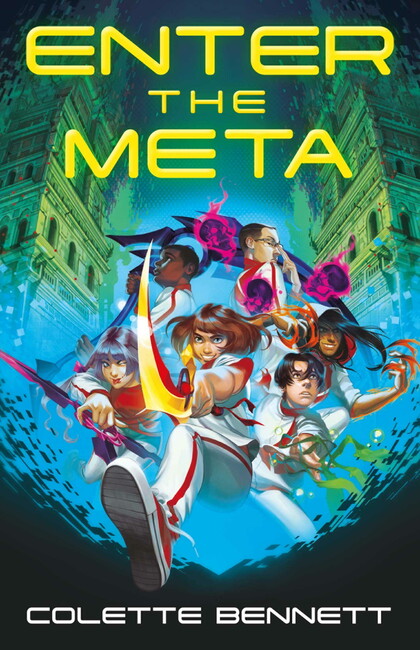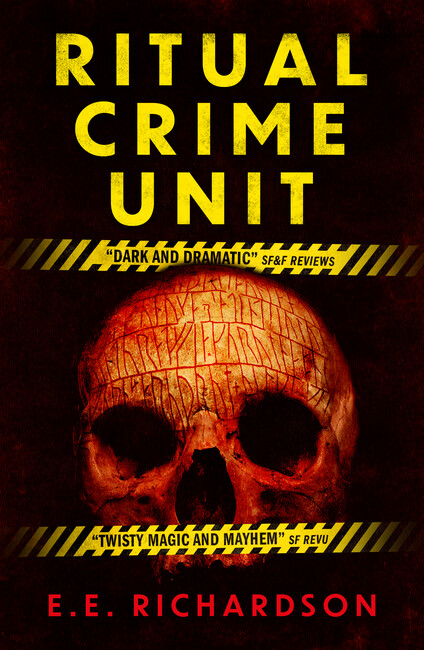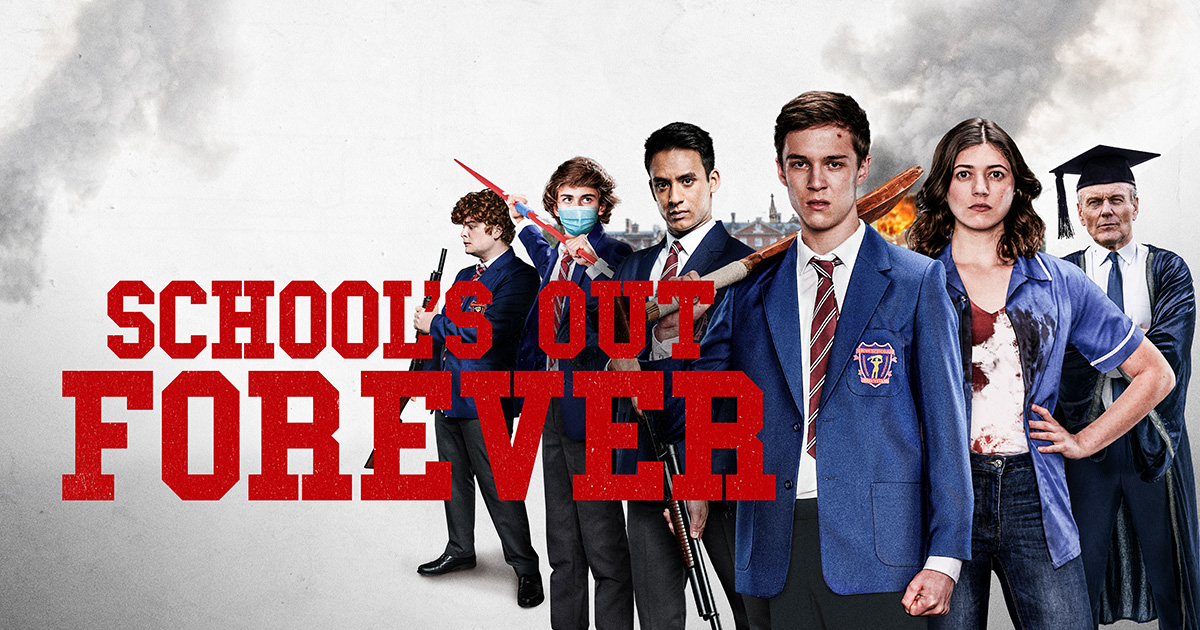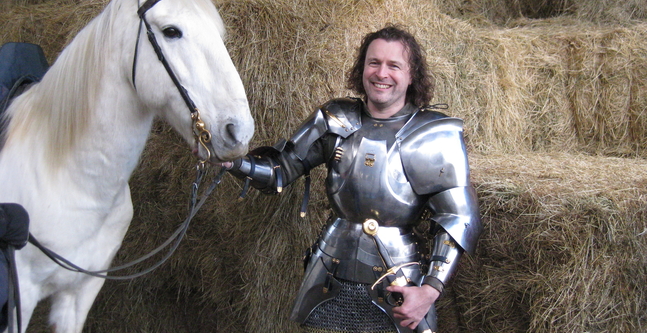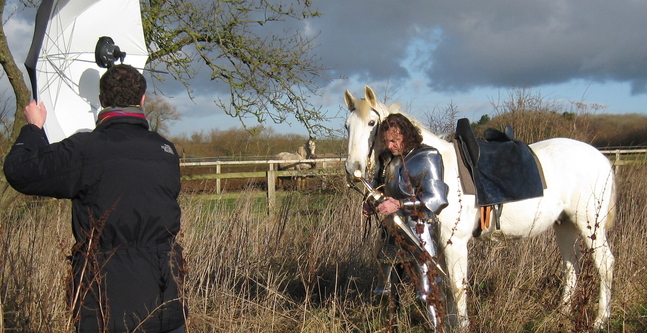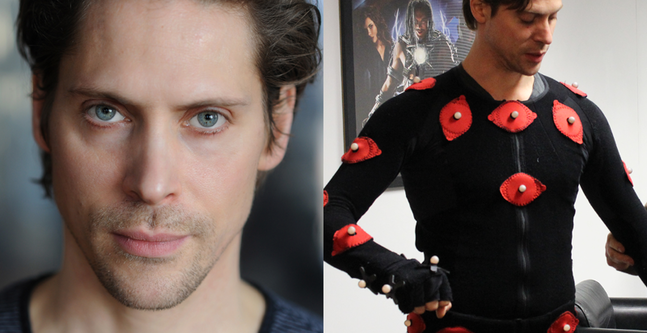
Some of you will have already enjoyed two awesome videos showcasing an actor performing motion capture at Audiomotion studios for Zombie Army Trilogy and our April Fools’ Zombie Army “Thrillogy” trailer.
But who’s the man behind the suit and glowing ping pong balls who brought the zombies, demons and survivors of Zombie Army Trilogy to life?
We sat down with actor Neil Newbon to discuss his career, his favourite games, and doing the Hitler thriller dance in just one take …
Hi Neil, thanks for chatting with us. A few sharp-eyed UK gamers might recognise you from TV shows like Hollyoaks but what else have you worked on? Did you start out in other entertainment industries?
Pleasure thank you. I’m a professional Actor with over 14 years of experience in film, tv and theatre, predominately in lead or supporting lead roles. My more recent work includes NetFlix’s three-part series Residue, 76 Days Adrift for Discovery Channel, Hollyoaks Later, and the multi-awards winning short The Stomach – as you can imagine with over a decade’s experience my body of work has got pretty long and a more complete list can be found on spotlight.com than the one I keep in my brain!
And what about the games side of things?
Well, I’ve been a Performance Capture artist and Voice Over artist for over five years now, working on over a dozen video games for various studios, including amongst others: Castlevania: Lords of Shadow 2 ,F1 2014, Fable Legends, Until Dawn, Ghost Recon: Future Solider, FunCom’s: The Secret World and more. Of course Rebellion and Sniper Elite fans will know me best from Sniper Elite 3 and its spin off, Zombie Army Trilogy.
Where did you train and what are your specialities?
I trained at the National Youth Theatre and later with the internationally acclaimed Giles Foreman at his Centre for Acting. I’d say I have a background in method acting and movement but I’m also a highly experienced martial arts expert, incorporating motion capture dramatic performance with stunts, combat and weapon work into his roles.
You’re clearly a versatile actor with a wealth of experience in four different industries. Do you ever encourage other actors to think about working in video games?
I definitely take any opportunities I find to encourage other actors to enter Motion Capture as another part of their work.
Having comprehensive knowledge and considerable experience in many varied types of production across different media, allows me to be a better teacher as well as an actor- I am due to teach an ‘Understanding Actors’ course at NFTS this year and I also apply that as a Tutor with the Mocap Academy, teaching and enabling future games developers/ directors, as well as aspiring performance capture artists to better understand their craft and how to get the best out of their mocap shoots and the projects as a whole.
I’m also honoured to be a member of this year’s BAFTA Games Crew! I was helped early on through all the fields in my career I have worked in and I feel it is only karma to help and support those who show an interest too. This is my way of giving that back into the Industry and brings me immense satisfaction.
So let’s chat Zombie Army Trilogy! What was your role exactly?
I was very fortunate that not only did I get to play Hitler, zombies, skeletons, Elites (and all the other boss characters), but I also did the stunts, combat and in-game movements. I also captured all the main survivors for their in-game movements and cut-scenes, which was a very interesting challenge when dealing with tight schedules and a fast shoot to change between different characters sometimes on a scene to scene basis.
I got a real kick out of the chainsaw wielding Elites and end game Hitler boss was just ridiculous fun to inhabit. I hope every time his fist goes through a wall the players get a sense of my trying to tear each one of them apart with great joy and love!
How did mocapping the undead for ZAT compare to your other projects?
I love what I do – it’s basically playtime – this project was no exception!
Most shoots tend to be very physically demanding and ZAT proved just that – I like the challenge of working to multiple roles, switching movements from one set of creatures to another, sometimes on the fly, and the dark action paced, dynamic scenarios that this game offers up.
As a huge zombie fan (and this being the first zombie game I have been involved with to date) this particular project has a very special place for me. It really brought out the wide-eyed, staying-up-way-past-his-bedtime–staring-at-a-black-and-white-TV-hiding-under-covers kid in me.
ZAT basically fucking rules as a performance experience as well as my boy-fantasist day dream. It’s great to see so many players feedback and they joy they get from our collective work!
What ZAT characters were the most fun / hardest / to capture?
Interestingly the skeletons proved some of the hardest characters to portray – to find a movement based on ridged lines without muscle and sinew to allow complete fluidity was tough- we spent quite some time over a couple of sessions nailing it – I’m really pleased with the result but it was a bit ‘touch and go’ for a while to get the movements just right, with us trying multiple techniques to find the ‘feel’ for their machinations.
We got to use a lot of background material for the character of Zombie Hitler through stock footage and picture references. The team and I had a lot of fun weaving what I hope is a convincing dramatisation of the Nazi Leader.
Not only do you as an artist have to be very focused and centred about the task at hand, you need a good, trusting, working relationship with the animators and technicians as well as the specialists in the studio (the wonderful team at Audiomotion). They not only guide you through the story they want to take and help in characterisations, they also help give you the freedom for you to work in such complexity, with great ease. I am hugely grateful to work with Rebellion on Sniper Elite 3 and ZAT and it is a privilege to have so much fun throughout the hard work. Looking forward to the next one!
Tell us about the Thriller dance – how did that come about? Were you expecting the footage to ever see the light of day as an April Fools’ game announcement!?
Those loveable bastards sprung it on me at the end of the shoot after an incredibly gruelling day involving high tower falls and the like!
It was however enormous fun to do- we shot the whole thing in ONE take, no rehearsals for the routine, all of which improvised with shout outs from the team – the only initial note was of course ‘think Thriller’, I am amazed frankly it looks so great and I will happily acknowledge that is more to do with the Team’s skill than my own!
So what’s your favourite game of all time? And what about your favourite zombie or horror flick of all time?
Man – favourite game – dude seriously it’s impossible: some notables: huge fan of almost all of Bethesda’s work, I am a genuine fan of Rebellion of course and really enjoyed having my ass handed to me repeatedly in Sniper Elite 2. Left 4 Dead 1 and 2 as well as the Bioware games and Interplay and InXile reincarnations. I’m currently getting to grips with Pillars of Eternity which is a joyous modern take on the classic Infinity Engine.
Basically there are too many games and I have too much work to dedicate enough time to lose myself for too long – a good problem as a gamer to have I think!
Film wise: LOVE Dawn of the Dead – both Romero’s original and the re-make which is superb.
‘Zombieland’ is an amazing modern day classic too, shame it never became a series. Incidentally, a music video for Doves entitled ‘Kingdom of Rust’ which I was in, seems to have been homaged by the filmmakers in the long driving scene half way through the film (a testament to the wonderful vision of director China Moo-Young and to Doves’ haunting song), although this may only be coincidental!
Awesome stuff. Any last words? *loads shotgun*
Thanks to all at Rebellion, Audiomotion and especially the Players for continuing their support of the games we get to play in. I hope for every drop of sweat we broke , a player earns another ear-to-ear smile at dropping a triple zombie headshot in the game! Boom. *spits on the dust and spins the colt chamber one more time for luck*
You can find Neil on Twitter: @NeilNewbon or maybe even in a favourite game of yours …






